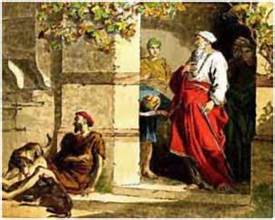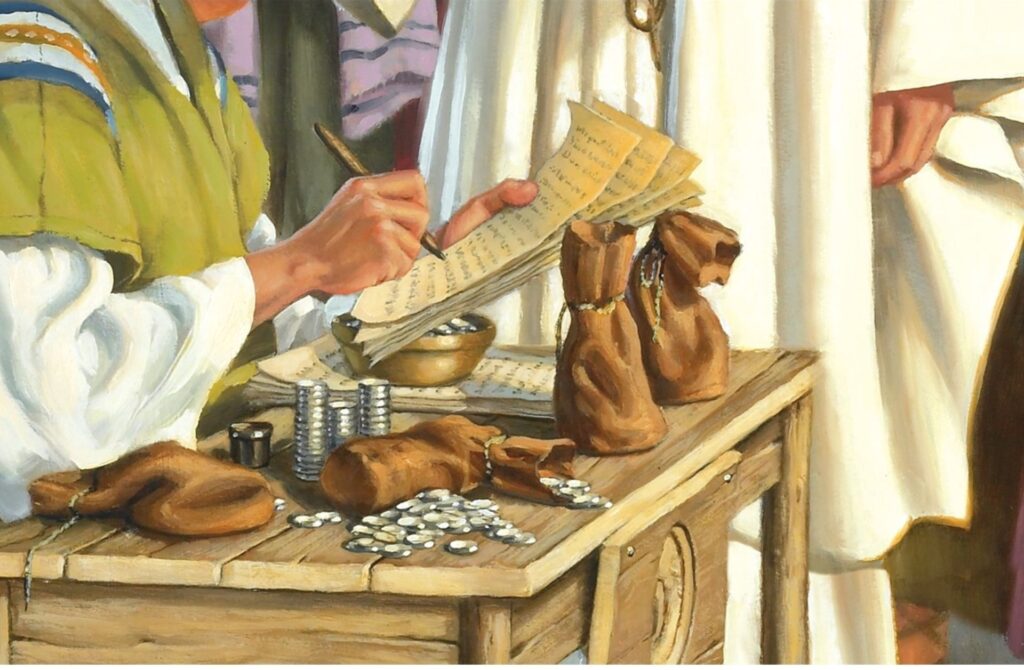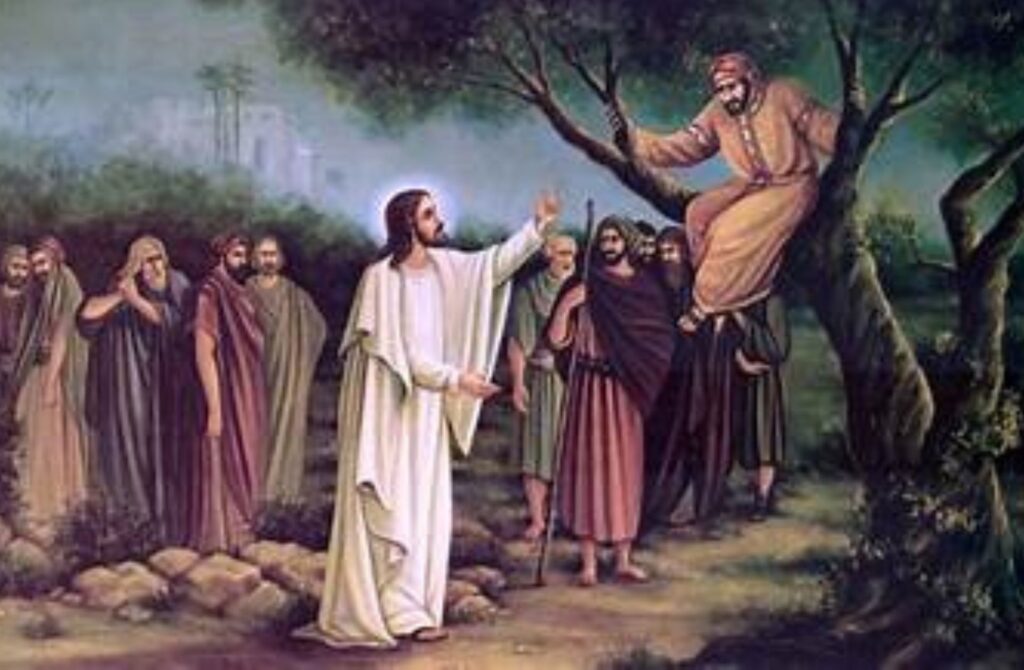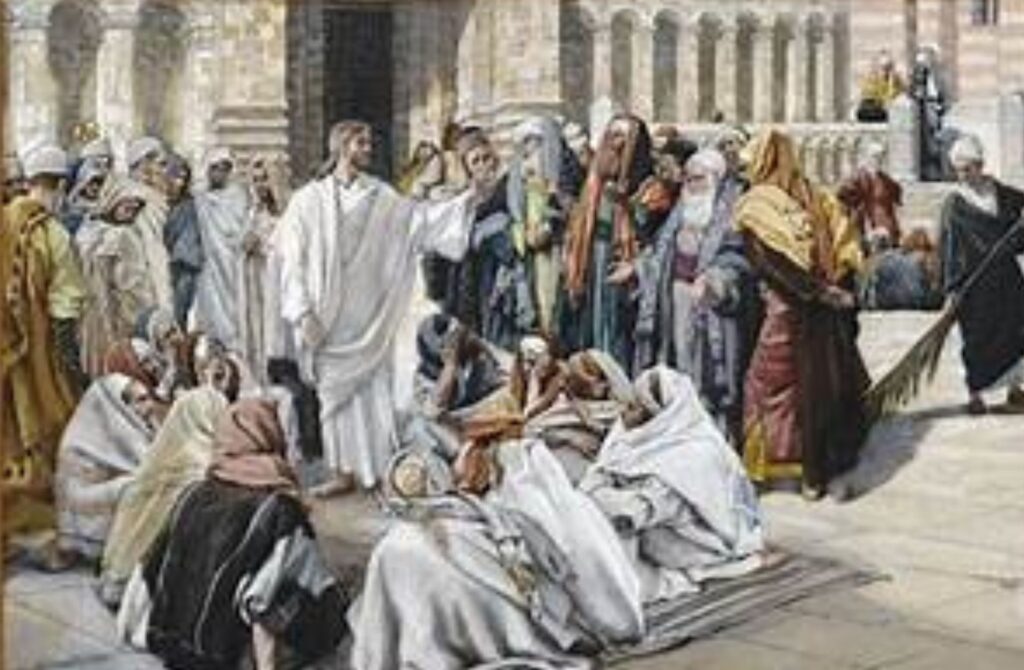Gospel of Luke 15-20 Overview

In Luke Chapters 15 through 20 Jesus Teaches of Salvation, Judgment, and the Nature of True Discipleship
Gospel of Luke Chapters 15-20 Overview. Luke Chapters 15 through 20 present a series of parables, teachings, and confrontations that emphasize Jesus’ mission to seek and save the lost, His divine authority, and the nature of God’s kingdom. In Chapter 15, Jesus tells parables about the lost sheep, coin, and son, highlighting God’s joy over repentance. In Chapter 16, He teaches about wealth, faithfulness, and judgment through the parable of the shrewd manager and the story of the rich man and Lazarus.
Chapter 17 focuses on faith, humility, and the coming of God’s kingdom, while Chapter 18 addresses prayer, humility, and childlike faith, culminating in the story of the rich ruler and Jesus healing a blind man. In Chapter 19, Jesus brings salvation to Zacchaeus, tells the parable of the ten minas to emphasize faithfulness, and makes His triumphant entry into Jerusalem. Chapter 20 includes Jesus’ confrontations with religious leaders, His teaching about the resurrection, and a parable condemning the religious authorities for their failure to lead faithfully.
Together, these chapters underscore the themes of salvation, judgment, and the nature of true discipleship.
Gospel of Luke 15-20 Overview
——————–

Luke Chapter 15 contains three parables that emphasize the theme of God’s love, mercy, and the joy of repentance. Each parable illustrates God’s desire to seek and save those who are lost. This chapter highlights the heart of God toward the lost, showing that no one is beyond the reach of His love and forgiveness.
- God’s Mercy: These parables show that God is merciful and desires to forgive, no matter how far someone has strayed.
- Joy in Repentance: There is great joy in heaven over a single sinner who repents. The value of each individual is immense in God’s eyes.
- Inclusivity of God’s Love: God’s love is not limited to those who appear righteous but extends to all, especially those who are lost.

Luke Chapter 16 contains two key teachings of Jesus that address themes of wealth, stewardship, justice, and eternal consequences. It includes the Parable of the Unjust Steward and the story of the Rich Man and Lazarus, which explore the proper use of wealth and the consequences of failing to live righteously. Luke 16 teaches that how we handle our resources and relationships matters deeply to God and has both present and eternal significance. It calls for wise stewardship, justice, and a heart oriented toward God’s kingdom.
- Stewardship of Wealth: Jesus teaches that wealth is a resource to be used wisely, not to be hoarded or misused for selfish purposes. True stewardship involves using money to serve others and God’s kingdom.
- Eternal Perspective: The chapter contrasts short-term, worldly thinking with long-term, eternal consequences. The wise person lives with eternity in view, understanding that how they handle wealth and relationships now impacts their eternal destiny.
- Justice and Compassion: The story of the rich man and Lazarus teaches that God is deeply concerned with justice for the poor and marginalized. Failing to show compassion to those in need can lead to severe consequences in the afterlife.
- Faithfulness: Jesus emphasizes the importance of being faithful in small things, as it reflects the character necessary for larger responsibilities, both in this life and the life to come.
- Choosing Between God and Money: Jesus stresses that people must choose between serving God or serving wealth (v. 13). Wealth can be a helpful servant, but it can also become a destructive master if it takes the place of God.

Luke Chapter 17 covers a variety of teachings from Jesus, focusing on themes such as forgiveness, faith, duty, gratitude, and the coming of God’s kingdom. This chapter also emphasizes the need for a life of faith, service, and readiness, reminding believers to be vigilant, humble, and grateful as they anticipate the return of Christ.
- Forgiveness and Accountability: Jesus calls His disciples to forgive generously and live in a way that does not cause others to stumble.
- Faith in Action: Even a small amount of faith can accomplish great things, but faith should always be accompanied by humility and service.
- Gratitude: Recognizing God’s blessings and responding with thankfulness is a key mark of faith.
- The Kingdom of God: Jesus speaks of the kingdom as both a present reality and a future hope, urging His followers to be spiritually ready for His return.
- Living with Eternal Perspective: Jesus stresses the importance of living in a way that reflects readiness for the future kingdom and the suddenness of His return.

Luke Chapter 18 contains a series of teachings and parables from Jesus, all of which address key themes such as persistent prayer, humility, faith, and the challenges of wealth in relation to the Kingdom of God. This chapter emphasizes the dependence on God’s grace and encouraging believers to trust in God’s justice, mercy, and power to bring salvation.
- Persistent Prayer and Faith: Jesus teaches the importance of persistence in prayer, showing that God is just and responds to the faithful cries of His people.
- Humility and Justification: The parable of the Pharisee and the tax collector highlights that humility and repentance, not self-righteousness, lead to justification before God.
- Childlike Trust: Jesus calls for a childlike openness and dependence on God, showing that humility is essential for entering the kingdom.
- The Challenge of Wealth: The story of the rich young ruler illustrates the difficulty of serving both God and wealth, and the need for radical commitment to following Jesus.
- God’s Power and Grace: Jesus reminds His followers that salvation is not possible through human effort but only through God’s grace.
- Compassion and Faith: The healing of Bartimaeus shows that those who call out to Jesus in faith will experience His mercy and healing.

Luke Chapter 19 presents several key events and teachings of Jesus, focusing on themes such as salvation, the responsibility of believers to live faithfully in anticipation of His return, and the coming of God’s kingdom and call to recognize and respond to God’s presence and offer of grace. The chapter includes the story of Zacchaeus, the Parable of the Ten Minas, and Jesus’ triumphant entry into Jerusalem where He is welcomed as King but also faces rejection by the religious authorities.
- Salvation for the Lost: The story of Zacchaeus shows that Jesus’ mission is to seek and save those who are lost. Salvation comes to those who respond with faith and repentance, no matter their past.
- Faithfulness in Stewardship: The Parable of the Ten Minas teaches the importance of using the gifts and opportunities God gives us. Faithfulness is rewarded, while negligence leads to judgment.
- Jesus as the Messianic King: Jesus’ triumphal entry into Jerusalem declares His kingship, fulfilling prophecy and revealing Him as the Prince of Peace.
- Compassion and Judgment: Jesus’ weeping over Jerusalem shows His deep compassion for those who reject Him, but it also highlights the reality of judgment for those who fail to recognize God’s offer of salvation.
- Purity in Worship: The cleansing of the temple reminds believers of the importance of reverence and purity in approaching God.

Luke Chapter 20 contains several important teachings and confrontations between Jesus and the religious leaders in Jerusalem. The chapter deals with themes such as Jesus’ authority as the Messiah, the failures of the religious leaders, the nature of God’s kingdom, and the responsibility of religious leadership. Jesus exposes the false piety of the religious elite, teaches about the resurrection, and affirms His divine mission.
- Jesus’ Authority: Throughout the chapter, Jesus’ authority is challenged, but He consistently asserts His divine authority, particularly in His parable and teaching about the resurrection and the Messiah.
- Judgment on the Religious Leaders: The chapter is filled with confrontations between Jesus and the religious leaders, where He exposes their hypocrisy and failure to lead the people faithfully.
- The Kingdom of God: Jesus teaches that the kingdom of God operates on different principles than earthly kingdoms. In God’s kingdom, true authority, righteousness, and faithfulness are what matter.
- The Nature of the Messiah: Jesus reveals that the Messiah is not just a political or earthly king but a divine figure with authority over all creation. He fulfills both the role of the Davidic king and the suffering servant.
- Faithfulness and Judgment: The parable of the wicked tenants and the warning against the scribes show that those entrusted with leadership in God’s kingdom are accountable for their actions. Failure to fulfill their responsibilities leads to judgment.
You must be logged in to post a comment.